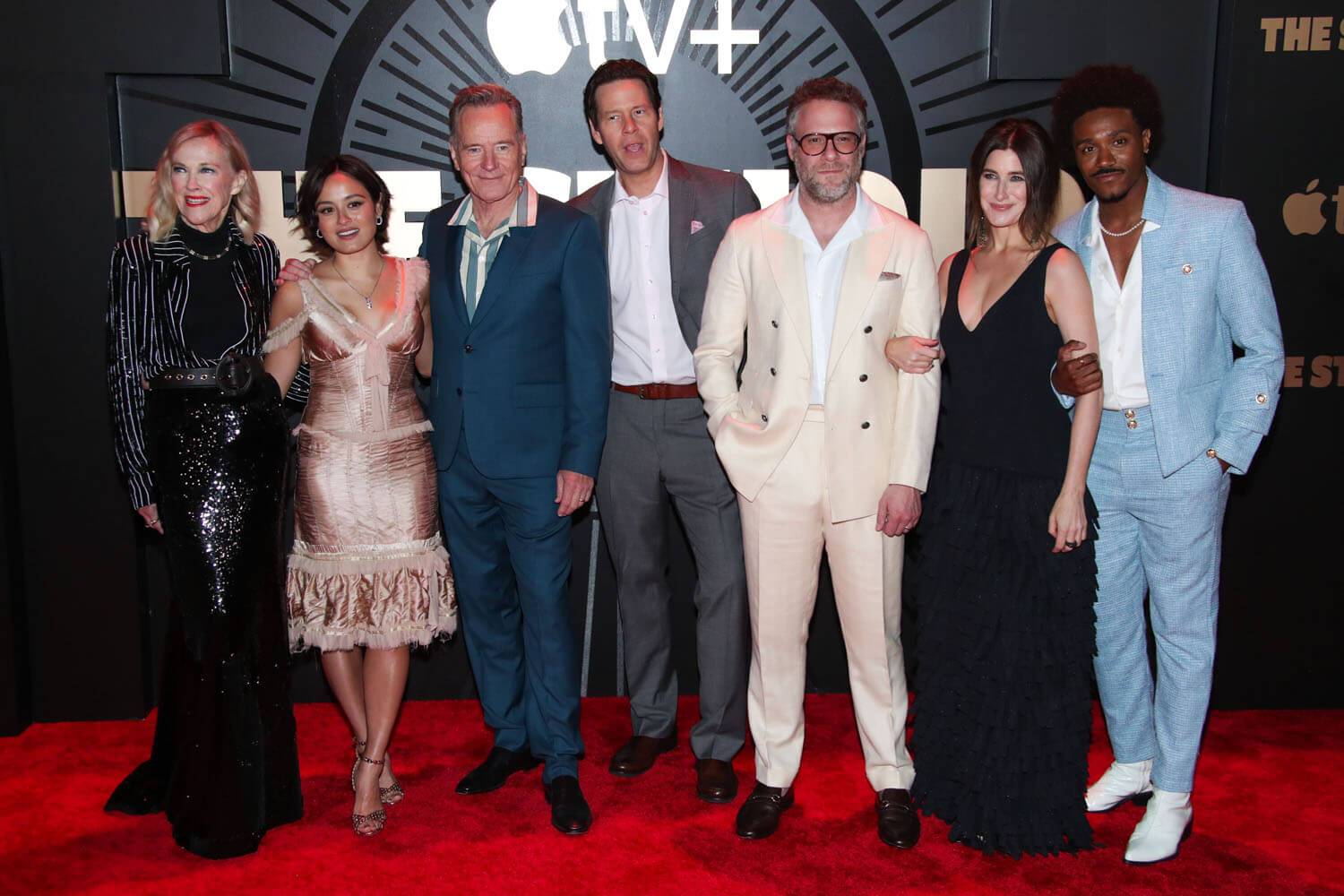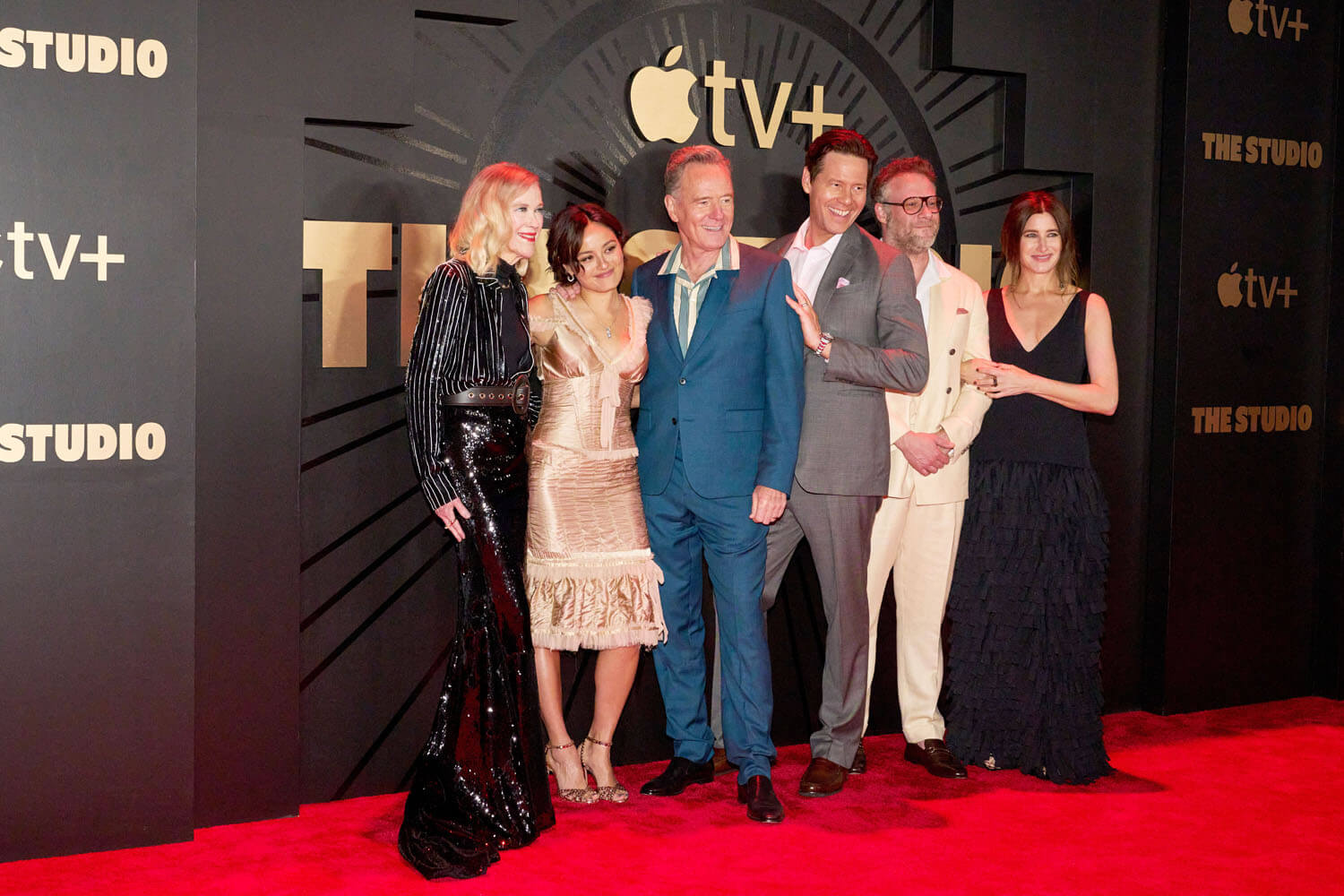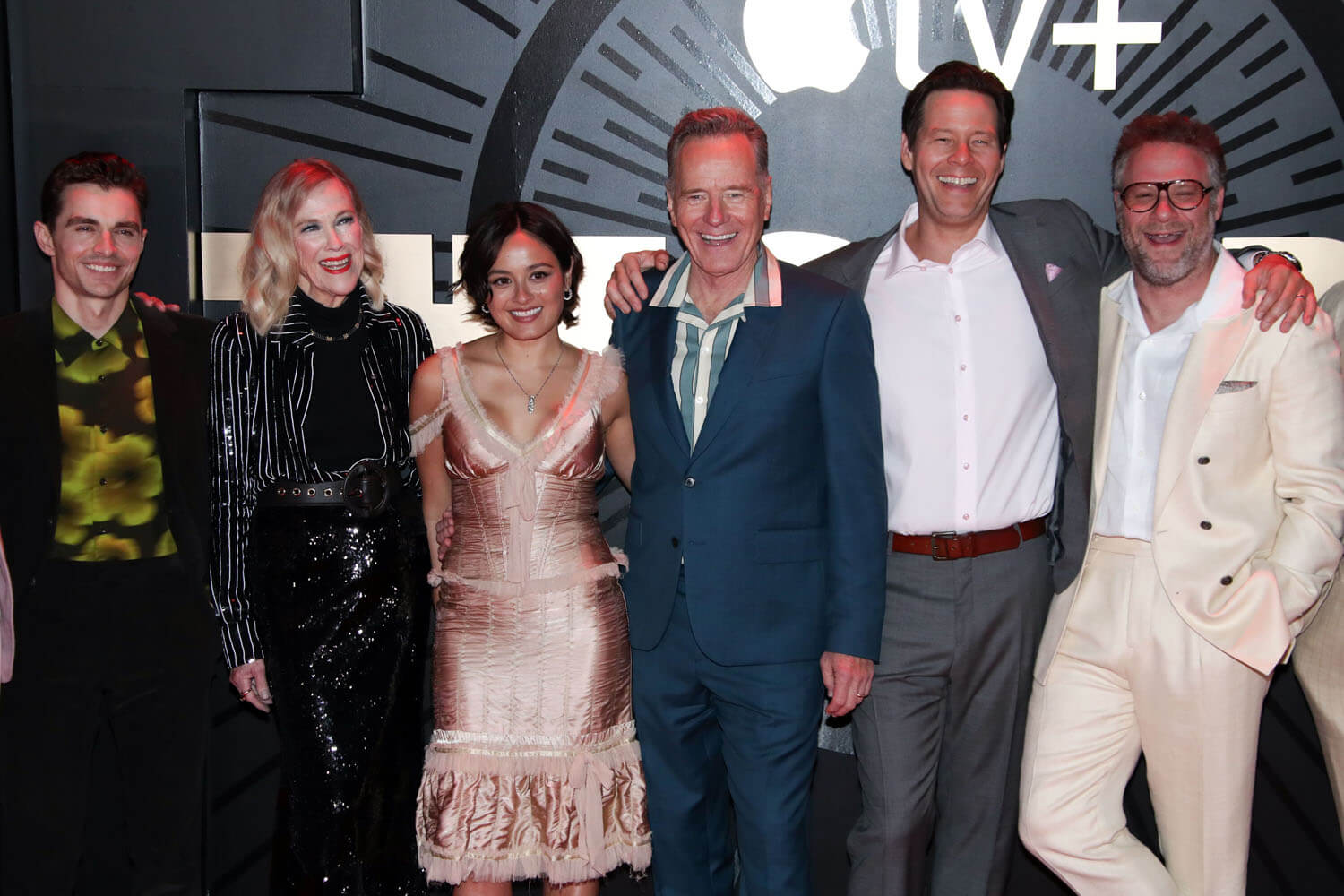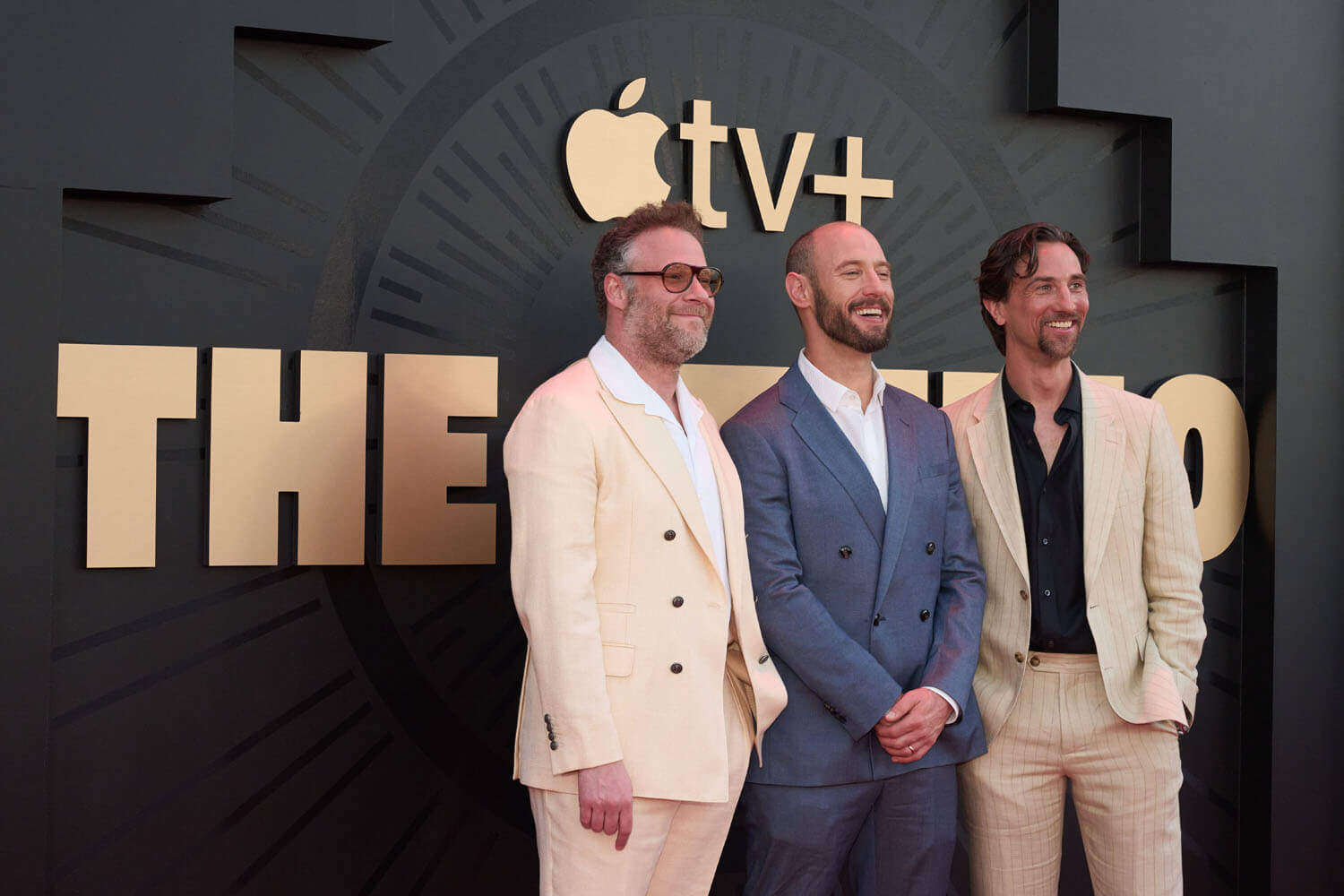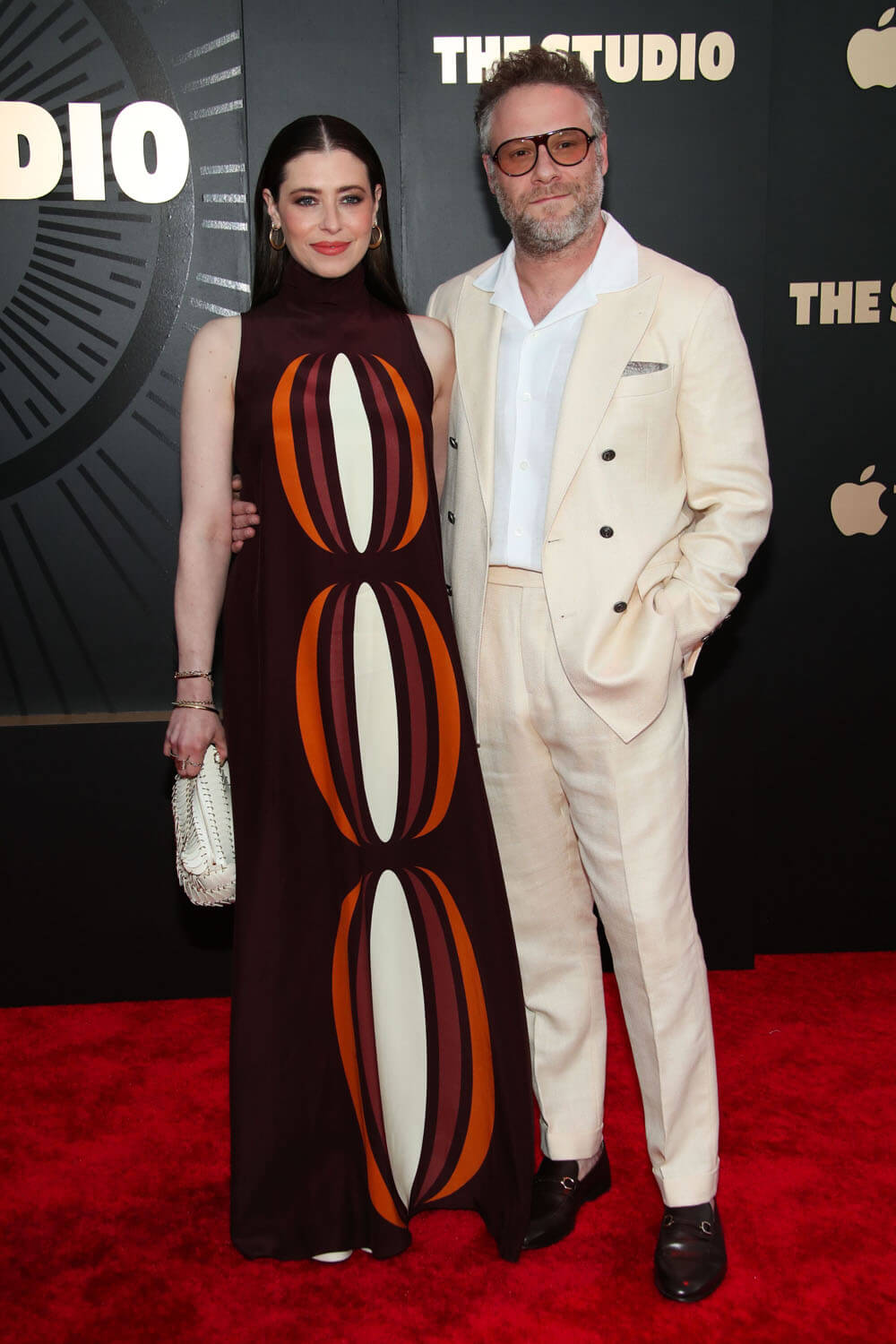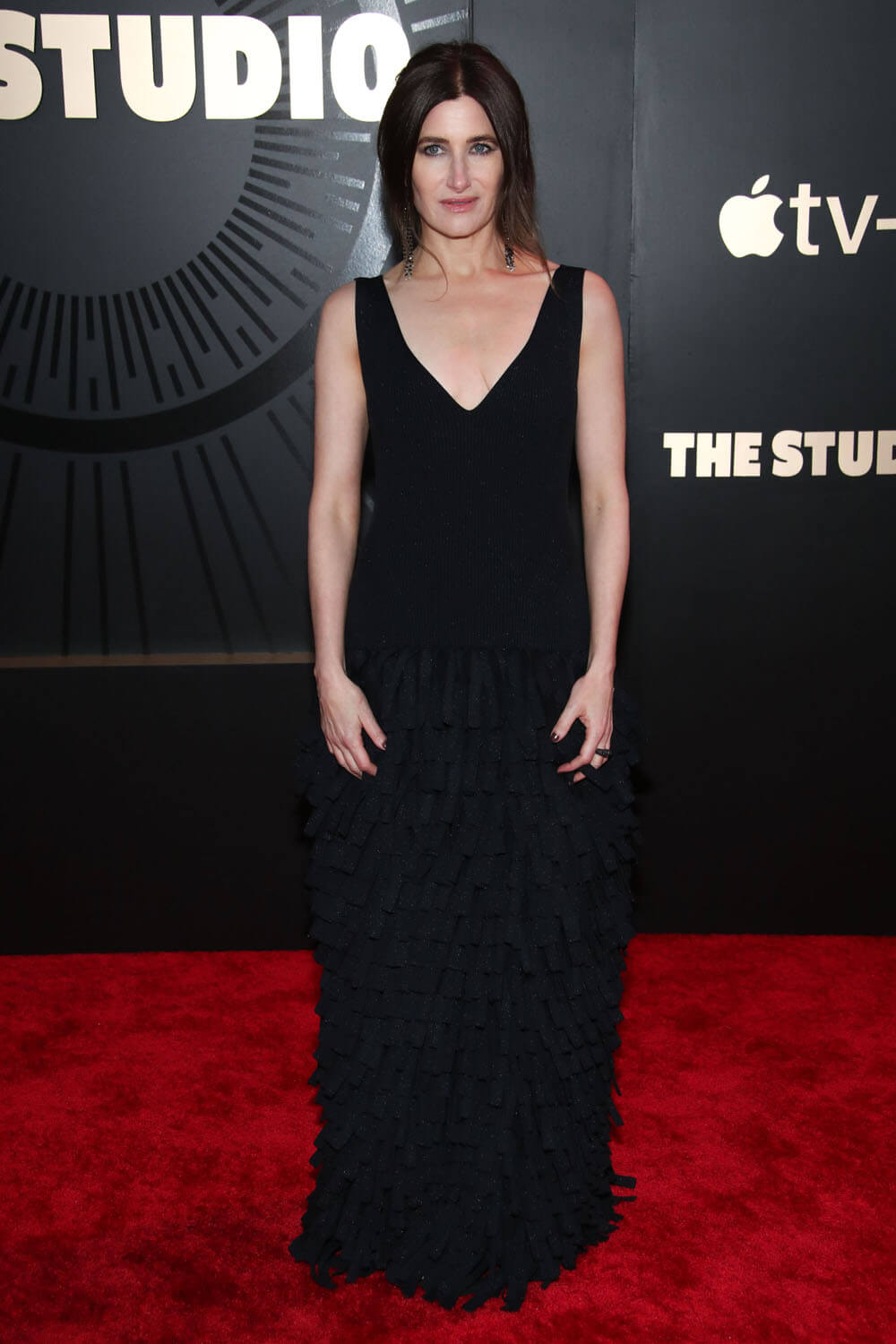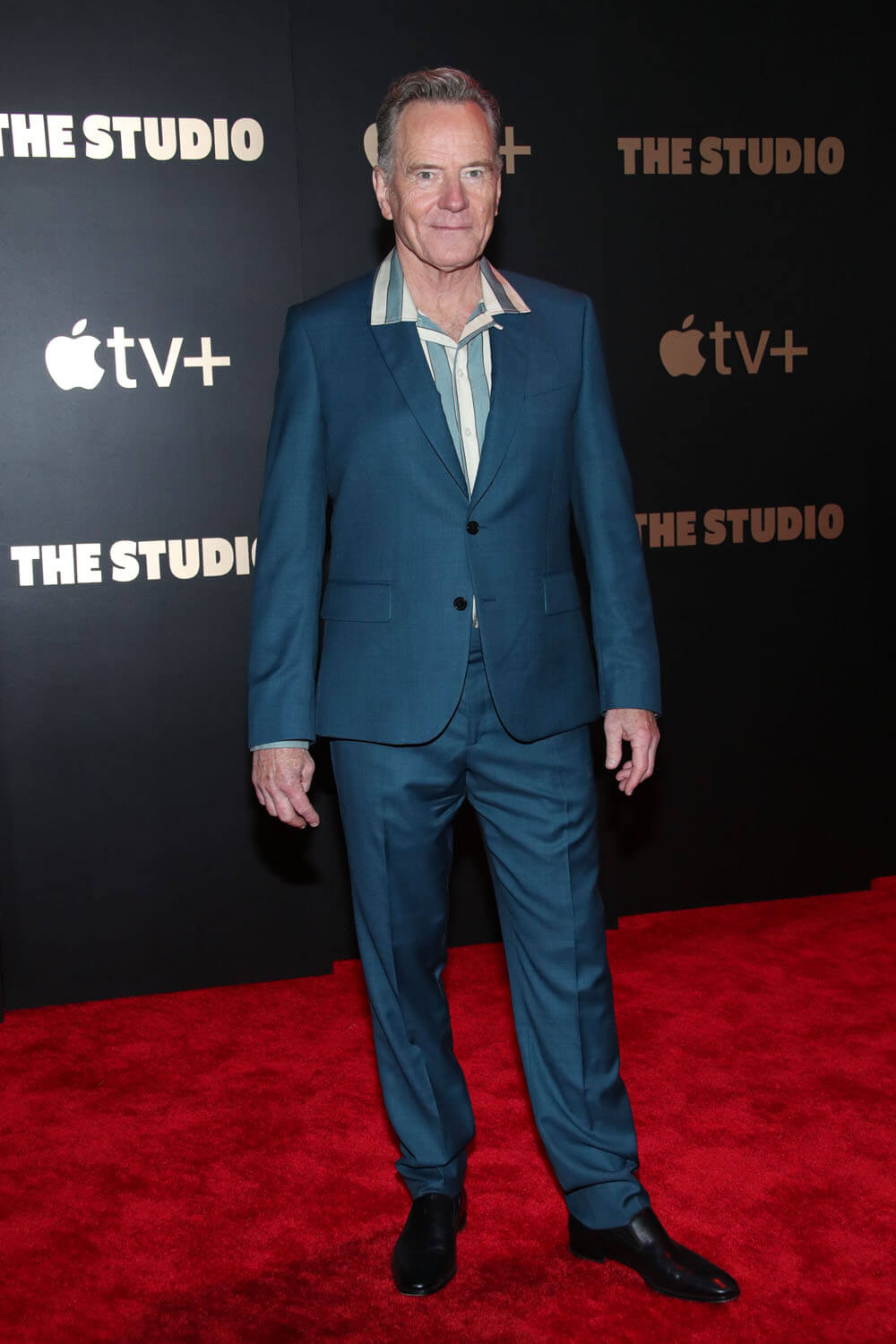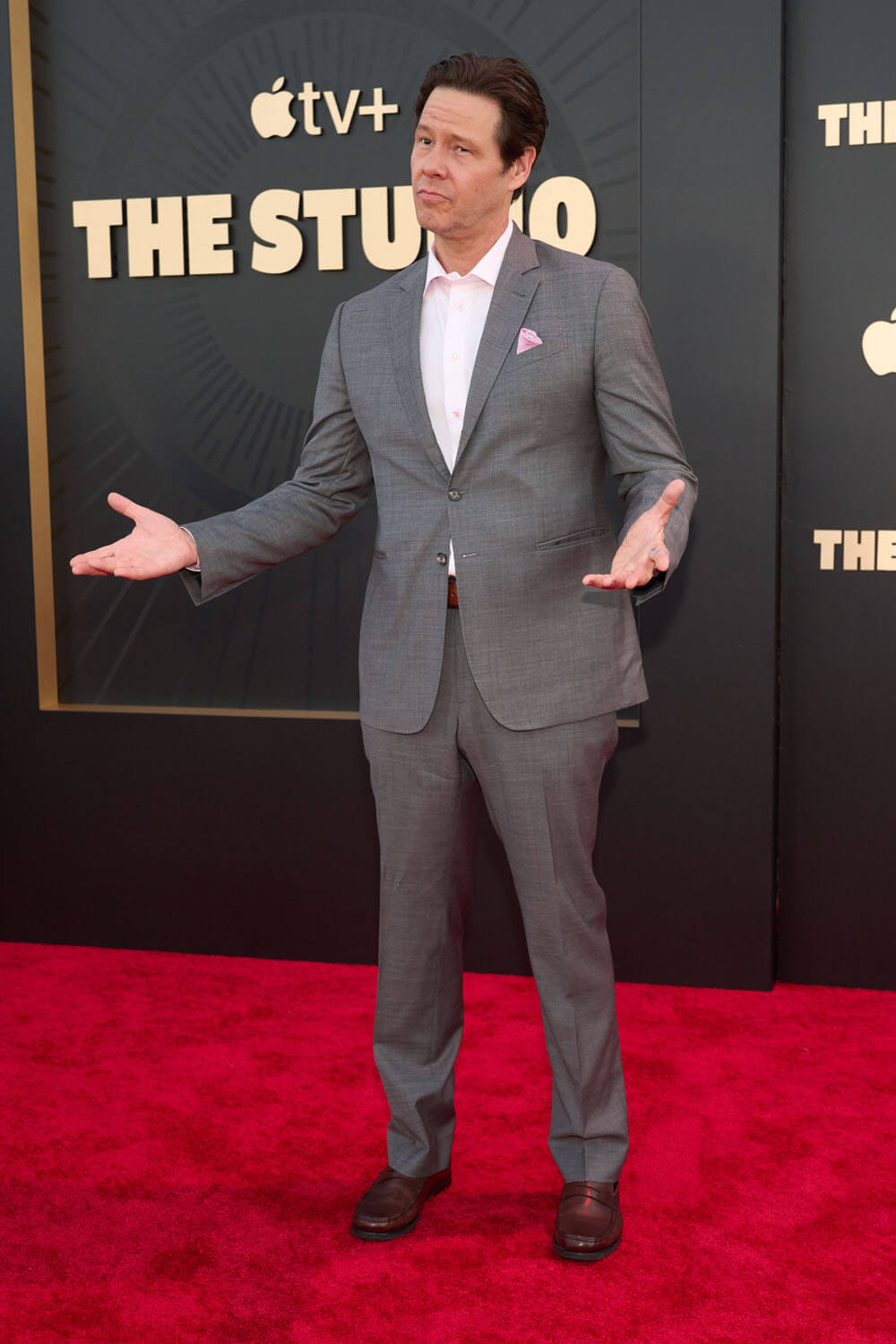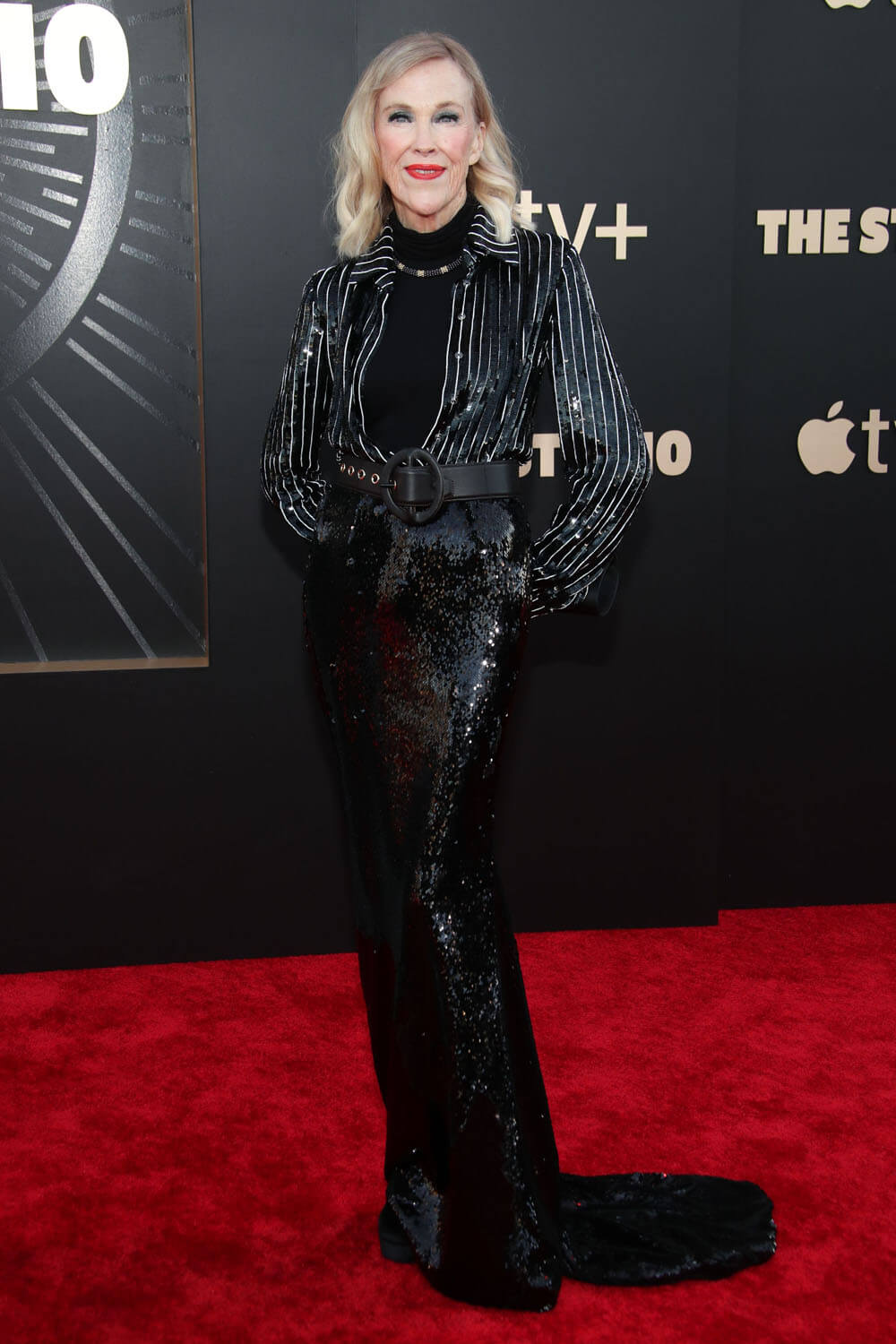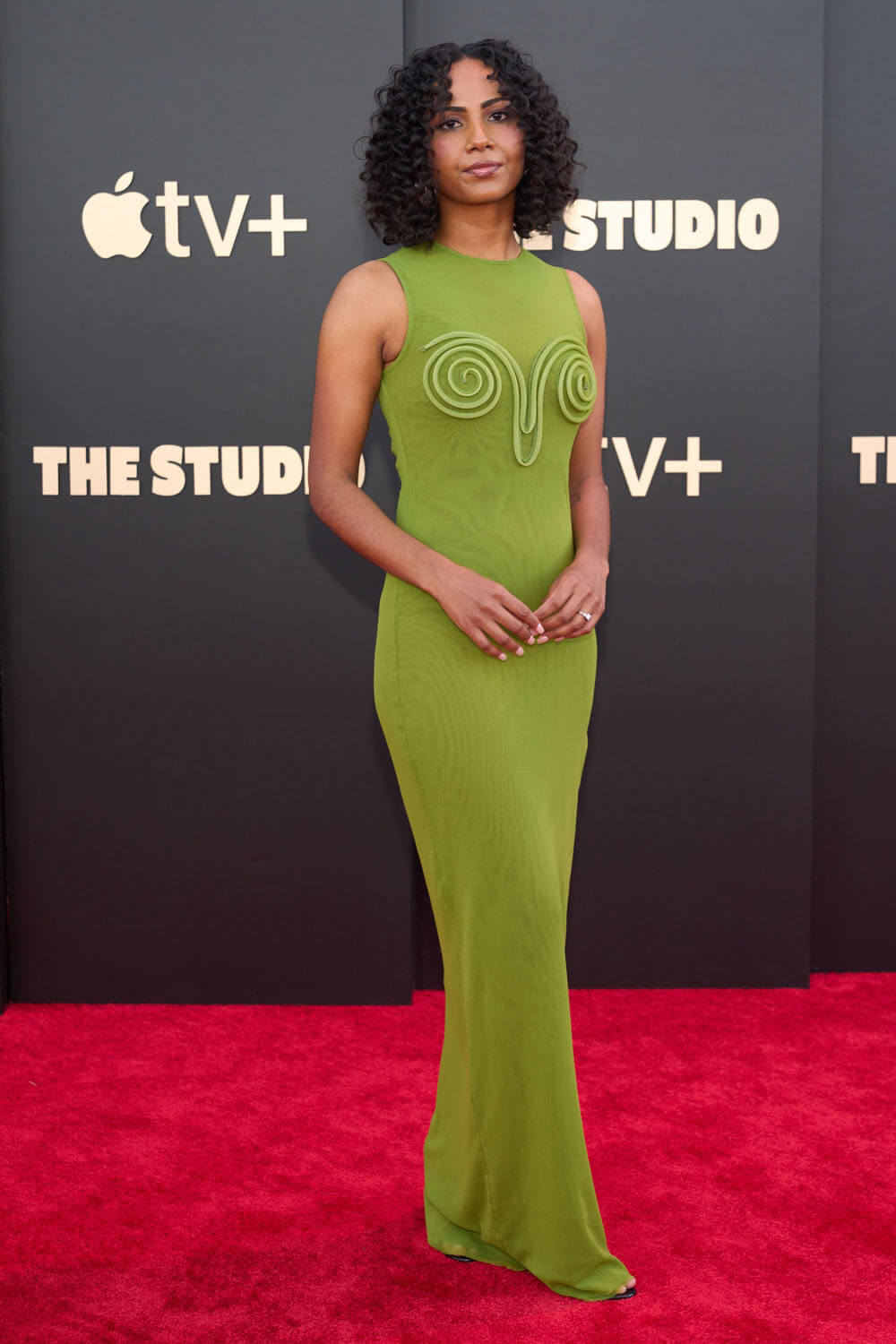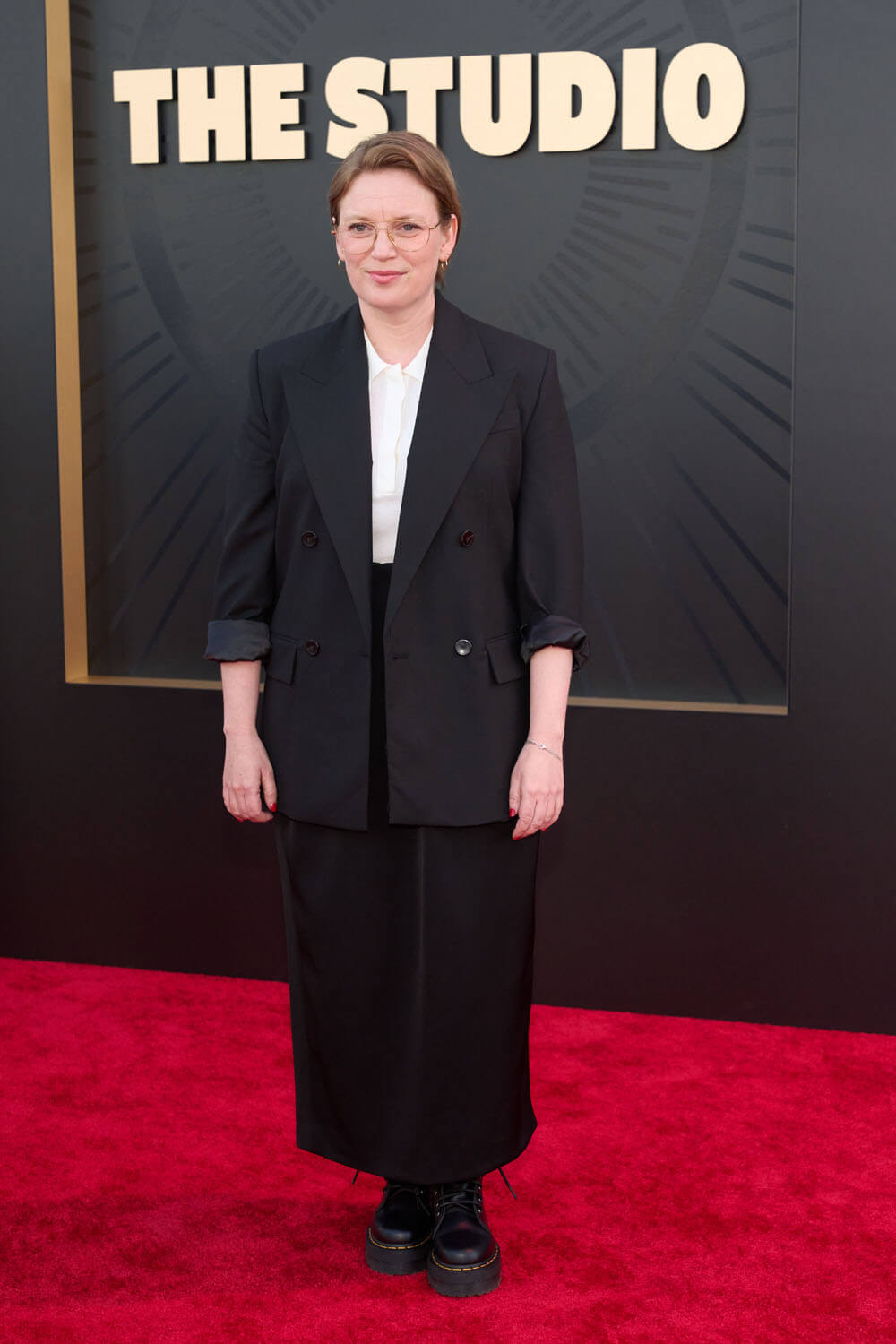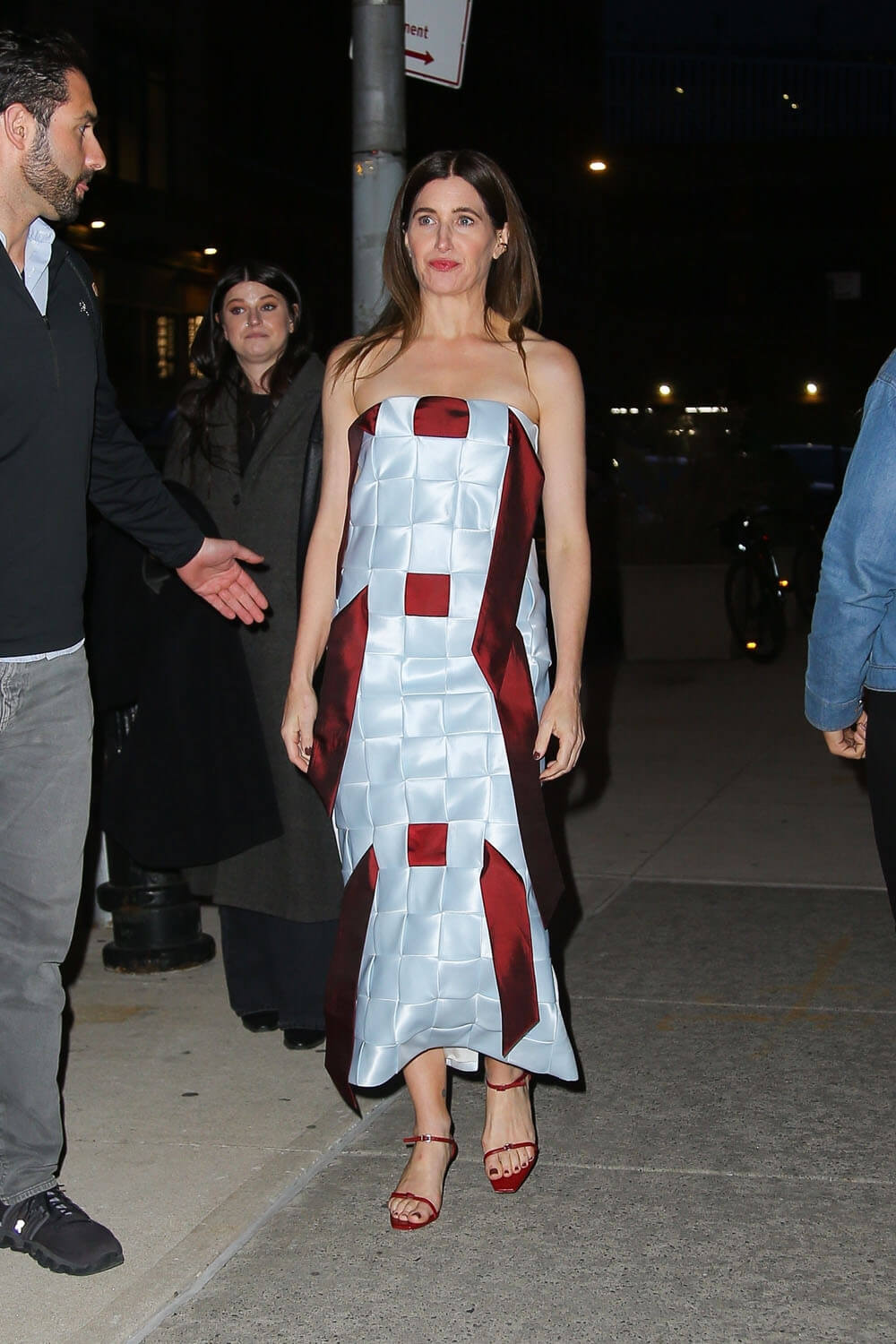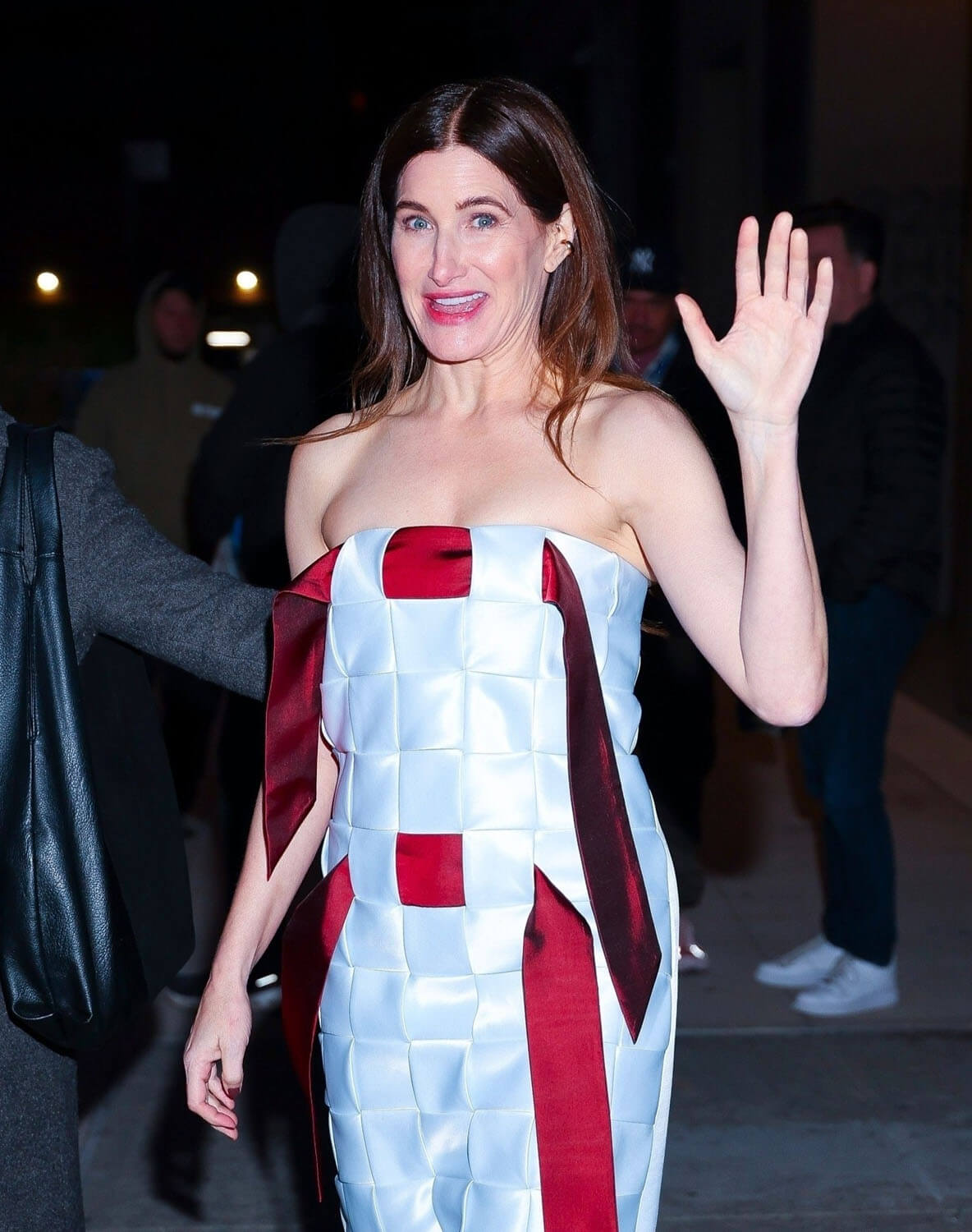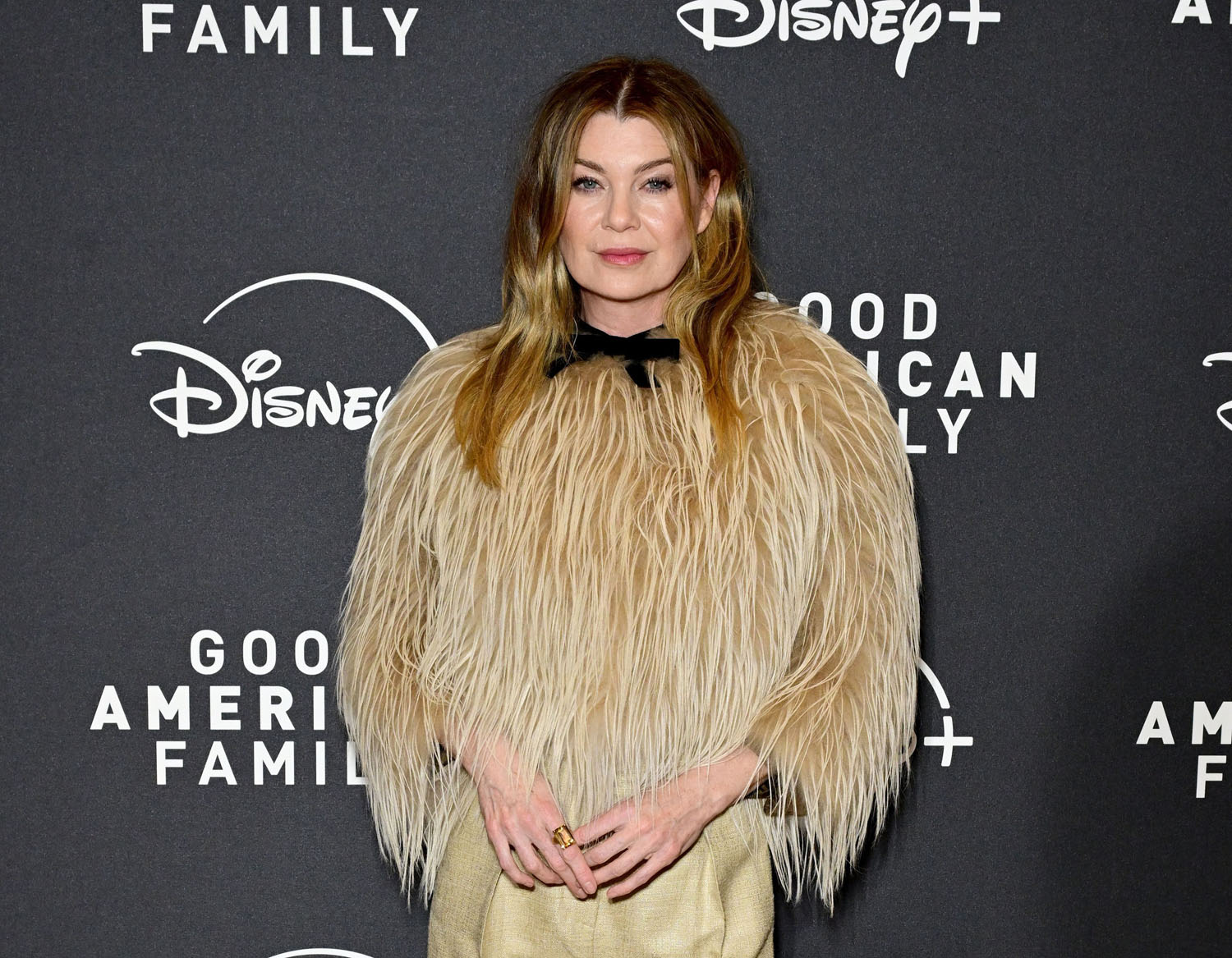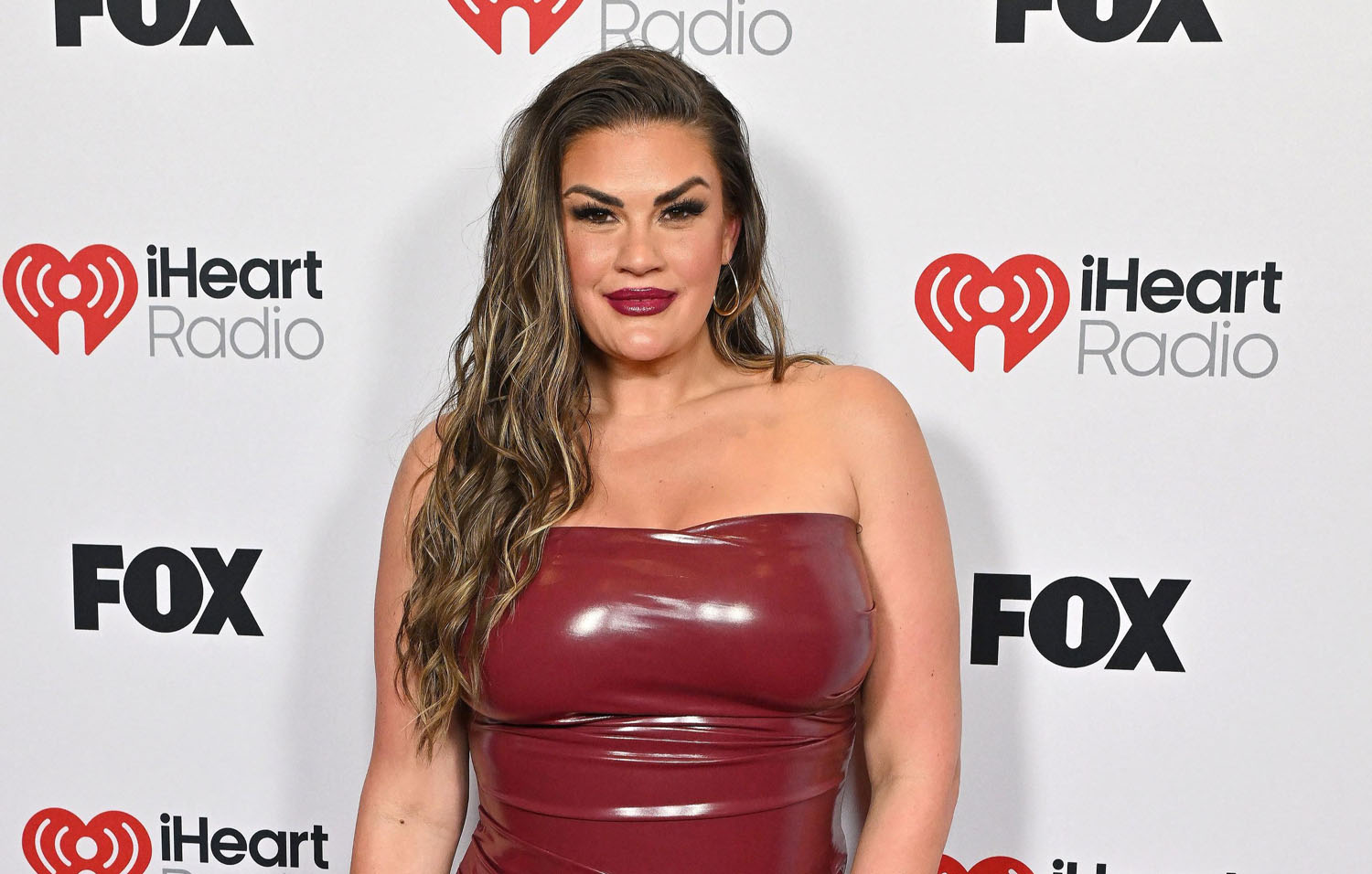Seth Rogen in The Studio


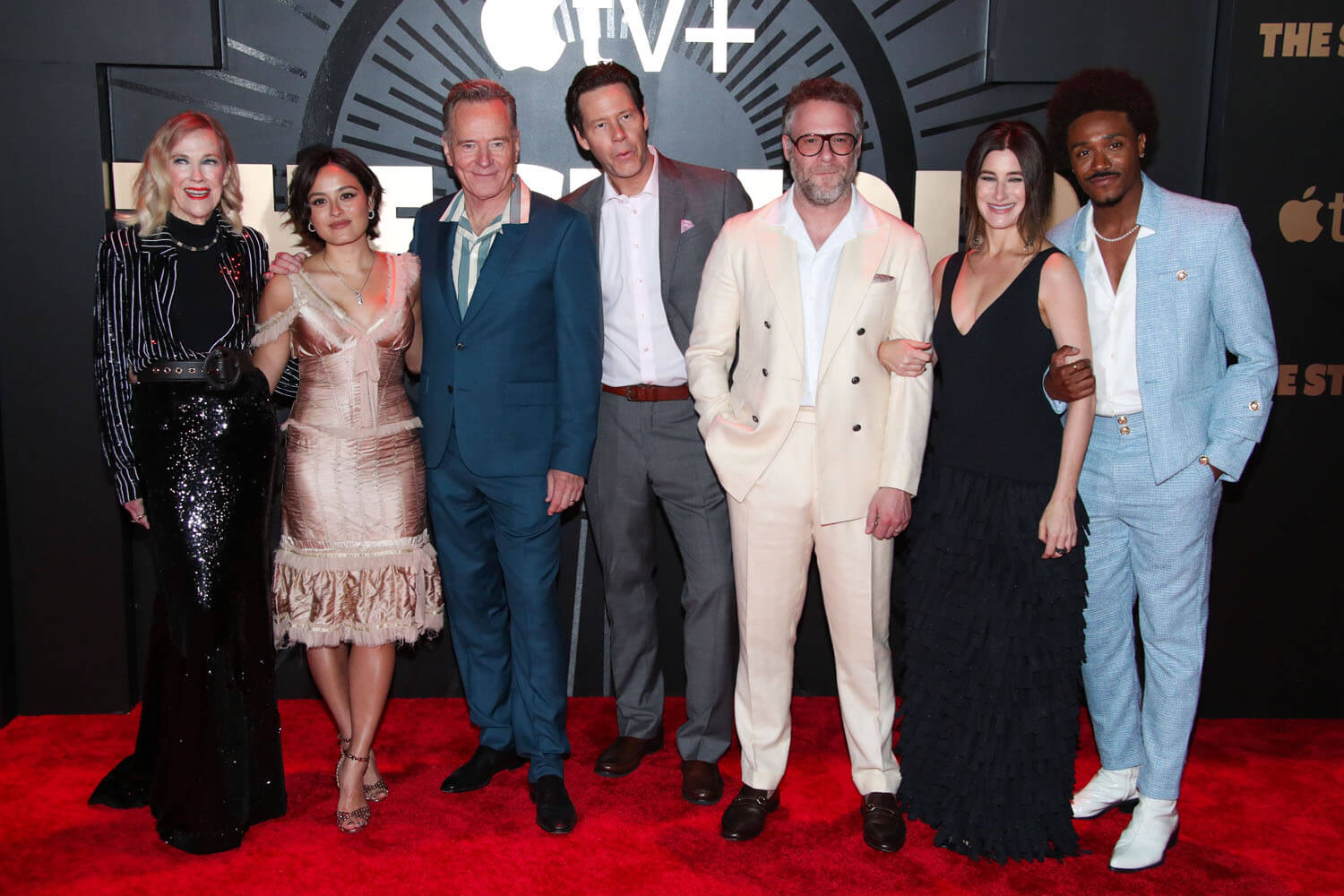
Seth Rogen and Evan Goldberg have been making movies together since 2007’s Superbad, which they co-wrote. They’ve been co-directing since 2013’s This Is The End, and they’ve been running the production company Point Grey since 2011. In other words, they’re three decades deep into a collaborative creative partnership in Hollywood, never mind that Seth Rogen is a movie star, too. This makes them the perfect insiders to make a Hollywood satire, which they have done with the new Apple TV+ series, The Studio. There is something particularly 21st century ironic about making a Hollywood satire about movies that is 1) a television series and 2) airs on a streaming platform.
Rogen and Goldberg co-created The Studio with Peter Huyck, Alex Gregory, and Frida Perez. All five serve as series writers, and Rogen and Goldberg co-direct every episode. This results in a remarkably consistent tone and vision for the series, which is a love letter to Hollywood in all its self-destructive absurdity. The Studio very much echoes other Hollywood satires like Robert Altman’s The Player, and like that film, it incorporates a huge number of real filmmakers and actors playing versions of themselves to create an alternate Hollywood that includes the fictional Continental Studios.
Rogen stars Matt Remick, a long-time employee of Continental who has worked his way up from production assistant to being named the new president when his boss, Patty Lee (Catherine O’Hara), is fired by Griffin Mill (Bryan Cranston, doing an homage to Robert Evans), the CEO of Continental’s parent company. Never mind that Matt’s career trajectory is one that almost doesn’t exist anymore, he’s just landed his dream job, running a storied Hollywood studio with the clout to make great cinema with great filmmakers. Except the first thing Griffin wants is a Kool-Aid movie. He wants to make money, not the “artsy sh-t” Matt likes. In the premiere episode, this leads Matt to attempt to turn a Jonestown movie from Martin Scorsese into a Kool-Aid movie, only to end up with Matt cruelly shattering “Marty” in the middle of a party.
The Studio revolves around Matt’s conflict of wanting to be part of the filmmaking process but also running a studio. On the one hand, he has the power to get movies made, on the other, he is just in the way when it comes to making movies. Matt considers himself an artist and part of the creative process, but no one else agrees with him, and on top of that, his desperate desire to be liked by actors and filmmakers often puts him into conflict with the talent at his studio. Much of the humor in The Studio is cringe-based as Matt is either forced into an adversarial role with filmmakers he admires, or he embarrasses himself around the stars he so wants to impress.
The Studio is a workplace comedy at heart, though, and as good as Rogen’s performance is—and it is a career best turn from him—he’s surrounded by a capable ensemble. Ike Barinholtz stars as Sal Seperstein, Matt’s friend and a fellow executive. Rather than turn the friends into enemies after Matt’s promotion, their friendship remains strong and Rogen and Barinholtz’s rapport is a highlight of the series. Similarly, Catherine O’Hara stars as Patty, Matt’s mentor who returns to Continental as a producer after being fired (a very common occurrence in Hollywood, outgoing executives are often given deals to produce movies for their former company). O’Hara shines as Patty, especially in later episodes when as she grows into her post-executive life as a producer.
There is also Quinn (Chase Sui Wonders), Matt’s protégé whom he promotes upon his own promotion—one episode focuses on Quinn and Sal’s generationally adversarial relationship to great comedic effect—and Maya, Continental’s marketing chief, played with voracious verve by Kathryn Hahn. Everyone gets a chance to shine throughout the series, and they’re all playing their roles with such specific choices one can only assume they’ve each based their character on someone they’ve met at a studio.
While The Studio is full of references and homages to classic cinema—its vintage styling and orange and brown color palette directly evoke the Seventies era in which studios regularly churned out cinematic masterpieces—the workplace comedy framing and Rogen and Goldberg’s comedic sensibility make it accessible to anyone. There is plenty of slapstick and screwball comedy, and anyone can relate to post-promotion pressure, expectations, awkward power dynamics, and demanding, insane bosses. The Studio is really f-cking funny, even if you don’t care a whit about making movies.
But if you DO care about movies, The Studio has plenty of insight into filmmaking, both on set and in the C suite. The series is underpinned by a tangible sense of love and wonder for Hollywood, a sense that every movie is a miracle and to get to make movies, even in an imperfect system, is a wonderful thing in and of itself. Far from cynical, The Studio maintains optimism, like Matt, that Hollywood will find a way forward through the myriad challenges it faces. At times, running Continental grinds Matt down, breaks his heart, and even leads to his humiliation, but his joy at being on a movie set, or seeing a movie he knows is, or can be, good never fades. Hollywood is not for the faint of heart, and yet it’s a town of dreamers. The Studio knows both to be true.
The Studio episodes 1-2 are now streaming on Apple TV+, with new episodes premiering every Wednesday.
Here is the cast of The Studio at the premiere in LA the other day, and Kathryn Hahn at Bravo Studios yesterday in New York.

